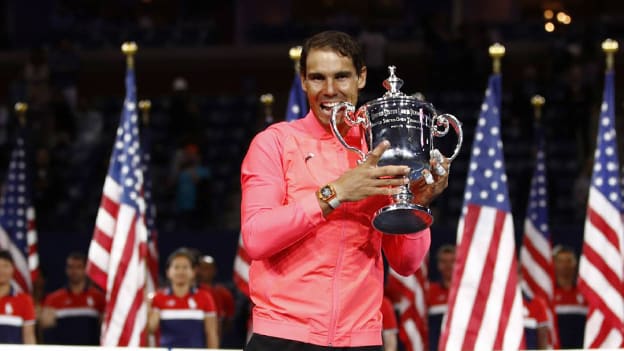Game-set-match: Resilience is the name of the game

Sports have always given so many great life and leadership examples. Every aspect that defines success in any sports, be it passion, team work, hard work, never-give-up attitude and having the heart to achieve the unachievable, is something that strongly resonates with success in anything in this world. And as leaders foray their businesses into the unknown territories, they play another similar game to succeed – a game of resilience.
Last weekend, poetry of resilience played on the tennis court when Rafael Nadal won his 16th Grand Slam finals at the US Open in straight sets (6-3, 6-3, 6-4). Not only did he win the tournament this year, he also moved to the Number 1 spot earlier in August for the fourth time in his career. Earlier this year, when Roger Federer won the Wimbledon, he became the oldest man to win the coveted title in the modern era. While his impeccable skills were never a doubt, he defied age – driven truly from his passion and love for the game.
Moving on to Rafa (as he is fondly called), he was introduced to tennis at the age of three by his uncle and current coach, Toni Nadal. He debuted at the Wimbledon in 2003 when he was only 17 years old and became the youngest man to reach the third round since Boris Becker in 1984. Looking at the 23 Grand Slam finals that he has played since then, out of which he has won 16; one would imagine his pure dominance on the tennis court.
Toni Nadal, once tweeted in 2014, “In 2006 people said Rafael would have a short career. The fact is that he’s been top-3 for last 10 years.”
But similar to some of the greatest names in Indian Cricket like Sachin Tendulkar, Nadal’s career has been tainted with injuries to the extent that people believed that the come back with the same performance levels will be very difficult. Interestingly, a blog reported that the word ‘injury’ shows up 27 times on Nadal’s Wikepedia page and this is 15 times more than on Novak Djokovic’s and 9 times more than Roger Federer’s page. In 2014, while he reclaimed his favorite French Open title for the 5th year in a row, the year was marked by physical injuries (the back, the wrist and the appendix). Then, in one of the interviews, he had said, “It has been a year with good times, but unpleasant from start to finish. There has been no respite.”
When asked about what makes him continue to play even through such painful times in life, Nadal shared an inspiring thought which not only drives him but has the power to drive all of us as individuals to greater success –“Not everybody has the chance to do what they like. It is important to be happy with what you do, instead of doing what makes you happy. That is a great virtue. For many years I have done what I like, which is playing tennis, and I’ve been happy, but I have also made a great effort from a very young age to achieve what I have achieved. Tennis is my passion.”
Nadal’s definition of talent may not be one that flows from a text book but one that comes from a lot of experience and would echo thoughts of many talent leaders.
He says in an interview, “Talent is something that people confuse… I do not care if you learn one thing in 15 minutes while it takes me three hours. If I am able to train for four hours and you can only do it for 15 minutes, you will have learned in 15 minutes, but I will have been training for four hours. That is having talent. There are many ways to understand talent, but the bottom line is that talent is getting to win more.”
After winning the last Grand Slam of the year, Nadal said, “Personally, it is unbelievable what has happened this year. After a couple of years with some troubles and injuries and not playing well, since the beginning of the season, it’s been very emotional.”
So, while Nadal is back dominating the game of tennis with his sheer passion, in the end, the fact remains as Kevin Anderson said, “He never goes away.” And that is what defines resilience.
















